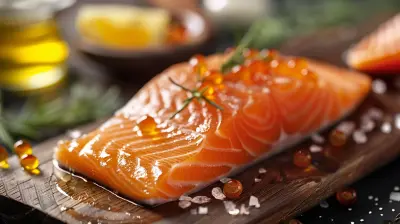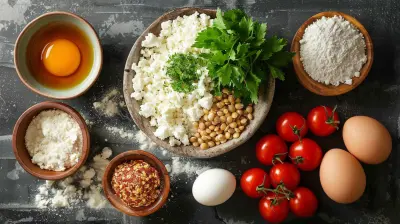How to Add More Omega-3s to Your Vegan Life
23 September 2025
If you're following a vegan diet, you've probably been told at some point that you aren't getting enough omega-3s. It’s one of those nutrients that tends to raise eyebrows when people find out you don’t eat fish. But don’t worry—getting enough omega-3s on a plant-based diet is not only possible, but actually pretty easy once you know where to look.
Omega-3 fatty acids are essential for brain health, heart function, and reducing inflammation. Traditionally, fish and seafood are the go-to sources, but there are plenty of plant-based ways to meet your omega-3 needs. Let's dig into the best vegan-friendly sources and how to incorporate them seamlessly into your diet. 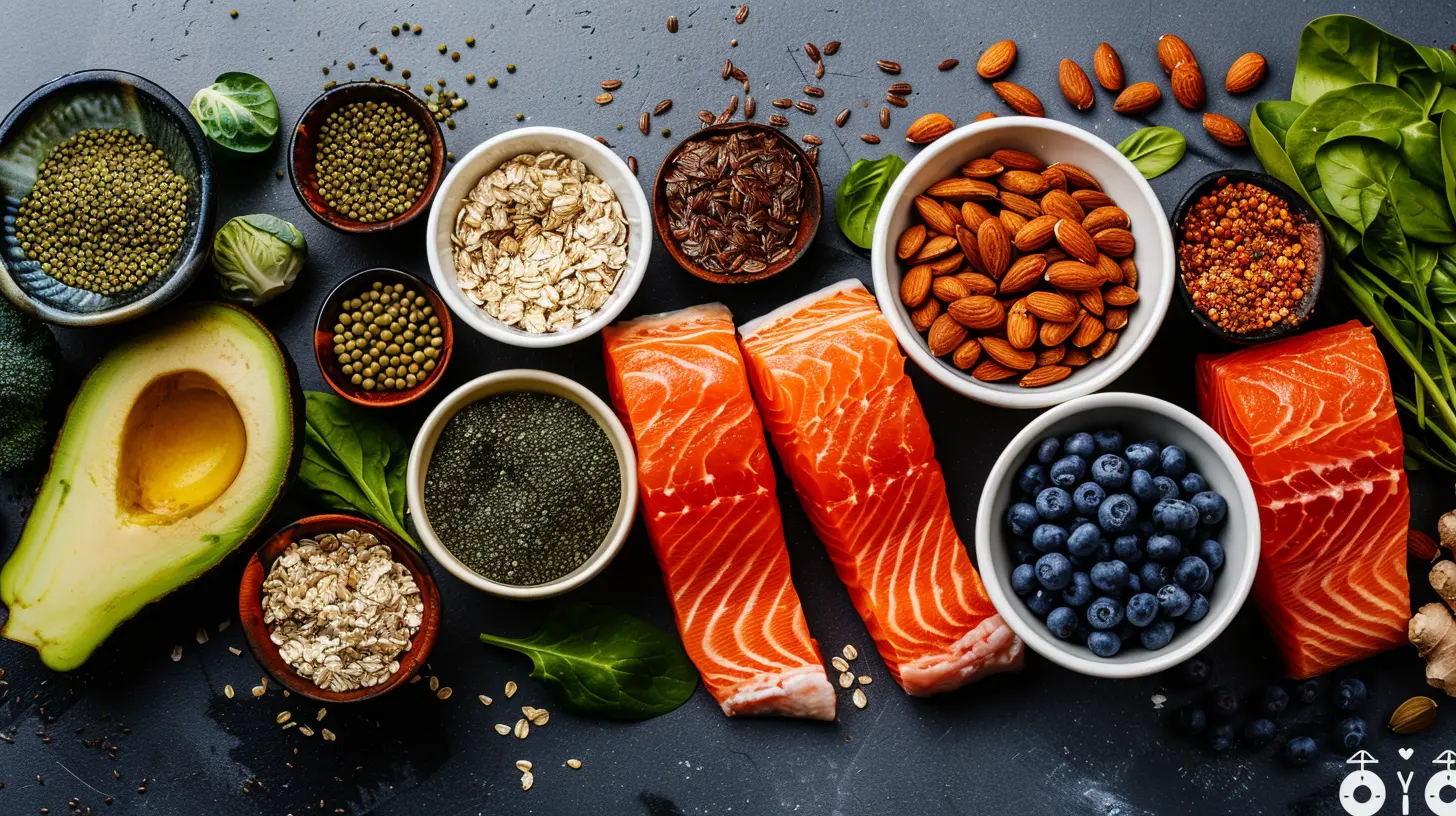
Why Do You Need Omega-3s?
Before we dive into the best vegan sources, let's talk about why omega-3s are so essential. Your body doesn’t produce these fatty acids on its own, meaning you have to get them from food. Omega-3s play a huge role in:✔ Brain Health – They help with cognitive function and may reduce the risk of neurodegenerative diseases.
✔ Heart Health – Omega-3s support healthy cholesterol levels and reduce inflammation, which lowers the risk of heart disease.
✔ Eye Health – These fats contribute to good vision and may help prevent dry eye syndrome.
✔ Reducing Inflammation – Chronic inflammation is linked to a host of issues, including arthritis, heart disease, and even depression. Omega-3s help keep inflammation in check.
But here's the catch—omega-3s come in different forms, and not all of them are created equal. 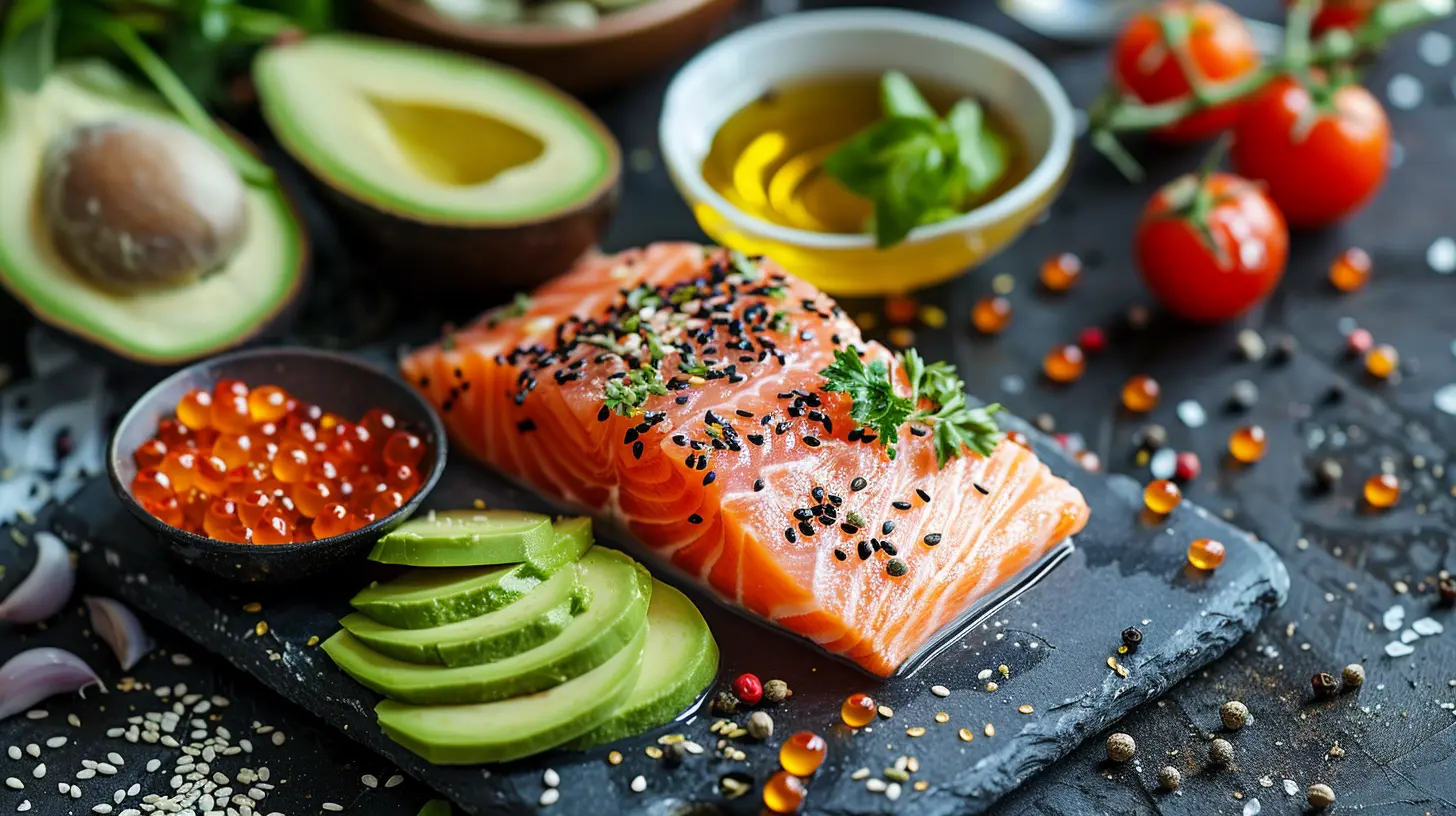
The Three Types of Omega-3s: ALA, EPA, and DHA
To fully understand how to get enough omega-3s on a vegan diet, you need to know about the three types:- ALA (alpha-linolenic acid) – Found in plants, ALA is the most common type of omega-3 in a vegan diet. Your body can convert ALA into EPA and DHA, but not very efficiently.
- EPA (eicosapentaenoic acid) & DHA (docosahexaenoic acid) – Primarily found in fish and seafood, these are the most beneficial forms for brain and heart health. Since vegans don’t eat fish, getting EPA and DHA from plant-based sources is key.
Your body can convert a small portion of ALA into EPA and DHA, but the process isn’t super efficient. This means vegans need to be extra mindful about their intake to ensure they’re getting enough. 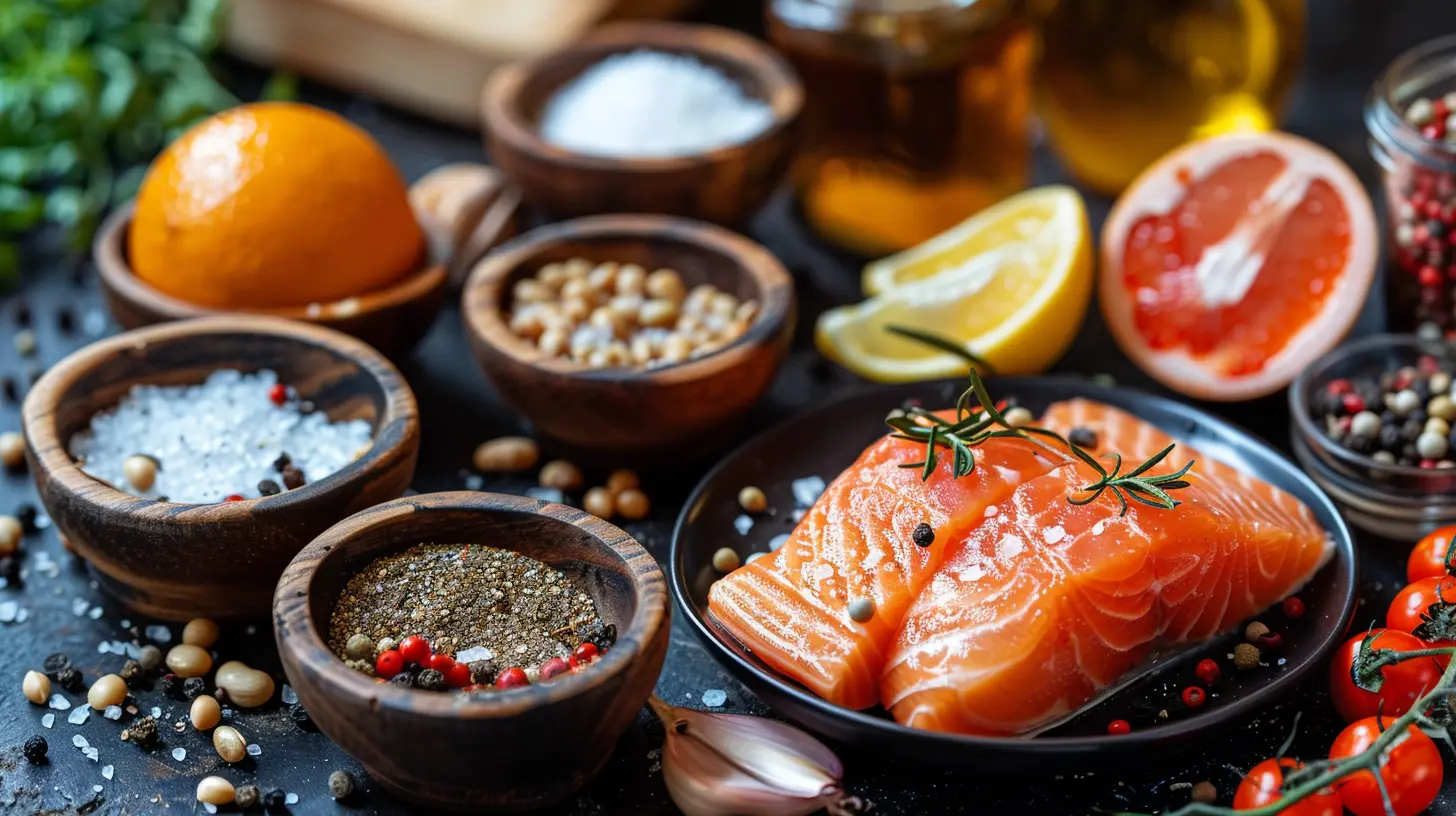
Best Vegan Sources of Omega-3s
Now for the good stuff—where can you get these essential fatty acids on a plant-based diet? Let’s break it down.1. Chia Seeds
Chia seeds are tiny but mighty! Just one tablespoon of chia seeds packs around 1,800 mg of ALA—which is more than enough to meet your daily needs.How to Use Them:
- Add them to smoothies.
- Sprinkle them over oatmeal or yogurt.
- Make a chia pudding for a delicious, nutrient-packed snack.
2. Flaxseeds
Flaxseeds are another powerhouse when it comes to ALA. A tablespoon of ground flaxseeds provides nearly 2,300 mg of ALA—more than the daily requirement for most adults!How to Use Them:
- Mix into oatmeal or cereal.
- Add to smoothies.
- Use as an egg replacement in baking (1 tbsp ground flax + 3 tbsp water = 1 flax egg).
3. Hemp Seeds
Hemp seeds may not get as much attention as chia and flax, but they are an excellent source of omega-3s. They provide about 2,600 mg of ALA per 3 tablespoons.How to Use Them:
- Sprinkle on salads, soups, or smoothie bowls.
- Stir into homemade granola.
- Blend into nut butter for an omega-3 boost.
4. Walnuts
If you’re looking for a crunchy snack that boosts your omega-3s, walnuts are an excellent choice. A handful (about 7 walnuts) delivers around 2,500 mg of ALA.How to Use Them:
- Toss into salads.
- Chop and mix into oatmeal or yogurt.
- Snack on them raw for an easy omega-3 boost.
5. Algal Oil (The Vegan’s Secret Weapon for DHA & EPA)
Here’s a game-changer: Algal oil is one of the few plant-based sources of both EPA and DHA. Since it’s derived from algae (which is where fish get their omega-3s in the first place), it’s a direct way for vegans to get these essential fats.How to Use It:
- Choose an algal oil supplement—look for one with at least 250-500 mg of combined EPA and DHA.
- Some brands sell algal oil as a liquid, which can be added to smoothies or salad dressings.
6. Seaweed & Nori
While not as concentrated as algal oil, seaweed and nori (the stuff used in sushi) contain small amounts of EPA and DHA. They’re a fun and flavorful way to boost your omega-3 intake.How to Use Them:
- Snack on roasted seaweed sheets.
- Add dried seaweed to soups.
- Wrap sushi rolls with nori. 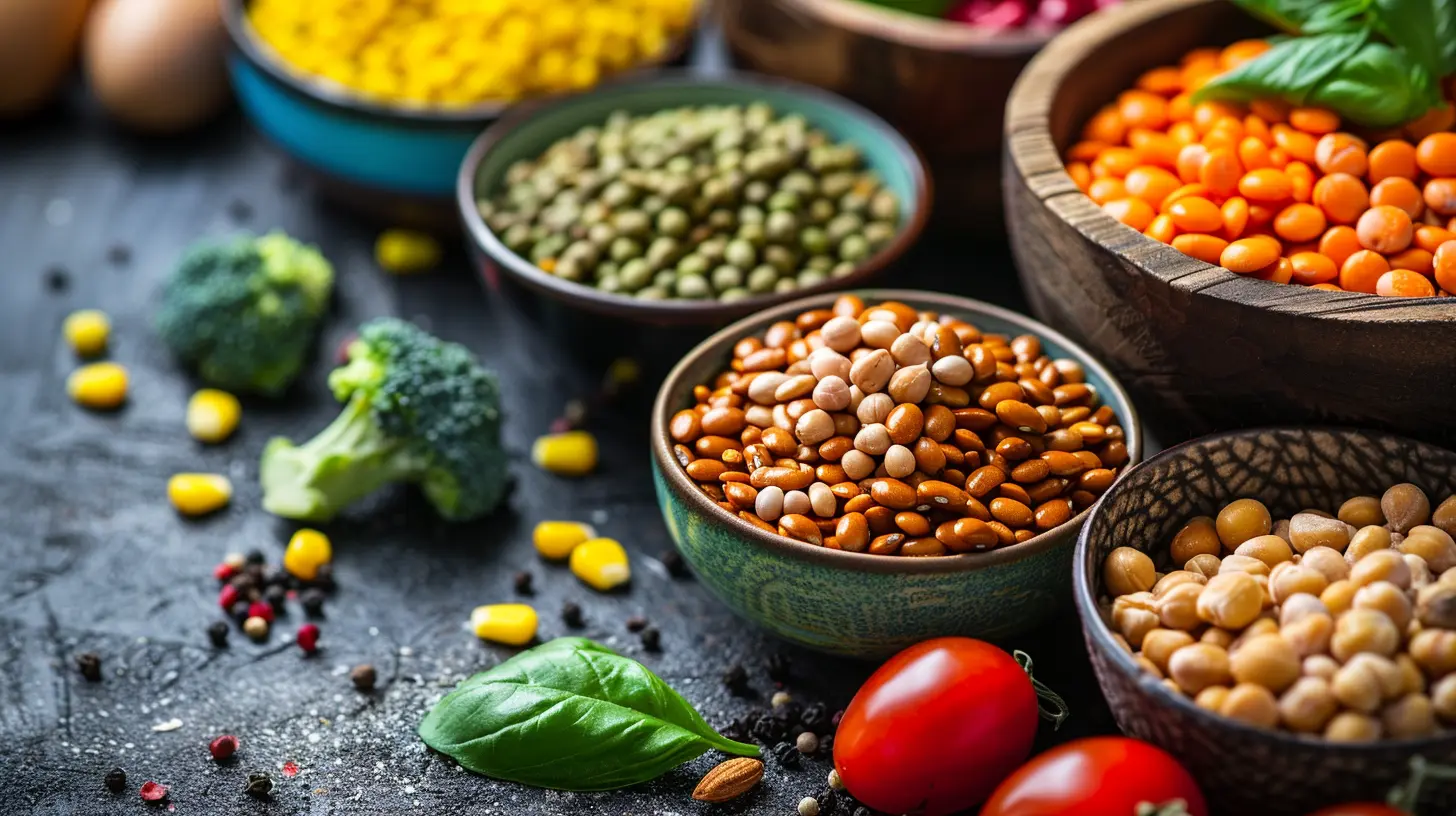
Tips for Boosting Omega-3 Absorption
It’s not just about eating omega-3-rich foods—you want to make sure your body absorbs them efficiently. Here’s how:✔ Balance Your Omega-6 Intake: Omega-6 fatty acids (found in vegetable oils and processed foods) compete with omega-3s for absorption. Reduce intake of processed foods and opt for healthier fats like olive oil and avocado.
✔ Grind Your Flaxseeds: Whole flaxseeds pass through your digestive system mostly intact, meaning you won’t absorb their nutrients. Always grind them fresh or buy pre-ground flaxseed (store it in the fridge to prevent spoilage).
✔ Take Your Omega-3s with Fat: Omega-3s are fat-soluble, meaning they absorb better when paired with other healthy fats. Add your seeds and nuts to meals that include avocado, nuts, or olive oil.
Do You Need a Vegan Omega-3 Supplement?
If you eat a diet rich in flaxseeds, chia seeds, walnuts, and hemp, you're probably getting enough ALA. However, since the body doesn’t efficiently convert ALA to DHA and EPA, some vegans may benefit from an algal oil supplement to cover their bases.Look for a supplement that provides at least 250 mg of combined EPA and DHA per serving. This is particularly important for:
- Pregnant and breastfeeding individuals (DHA is crucial for fetal brain development).
- Older adults (who may have a lower conversion rate of ALA to DHA).
- Anyone who wants extra support for brain and heart health.
Final Thoughts
Getting enough omega-3s on a vegan diet isn’t as hard as it seems! By including chia seeds, flaxseeds, hemp seeds, walnuts, seaweed, and possibly an algal oil supplement, you can meet your daily needs without a problem.The key is to be mindful of your intake and ensure a balanced ratio of omega-3 to omega-6 fatty acids. So, sprinkle some flaxseeds on your oatmeal, snack on a handful of walnuts, and maybe even consider an algal oil supplement. Your brain, heart, and body will thank you!
all images in this post were generated using AI tools
Category:
Vegan DietAuthor:

Laura Hudson
Discussion
rate this article
1 comments
Zayla Wolfe
Great tips! Excited to boost my Omega-3s for better health!
October 21, 2025 at 2:44 AM

Laura Hudson
Thank you! Excited for your journey to better health with Omega-3s!
